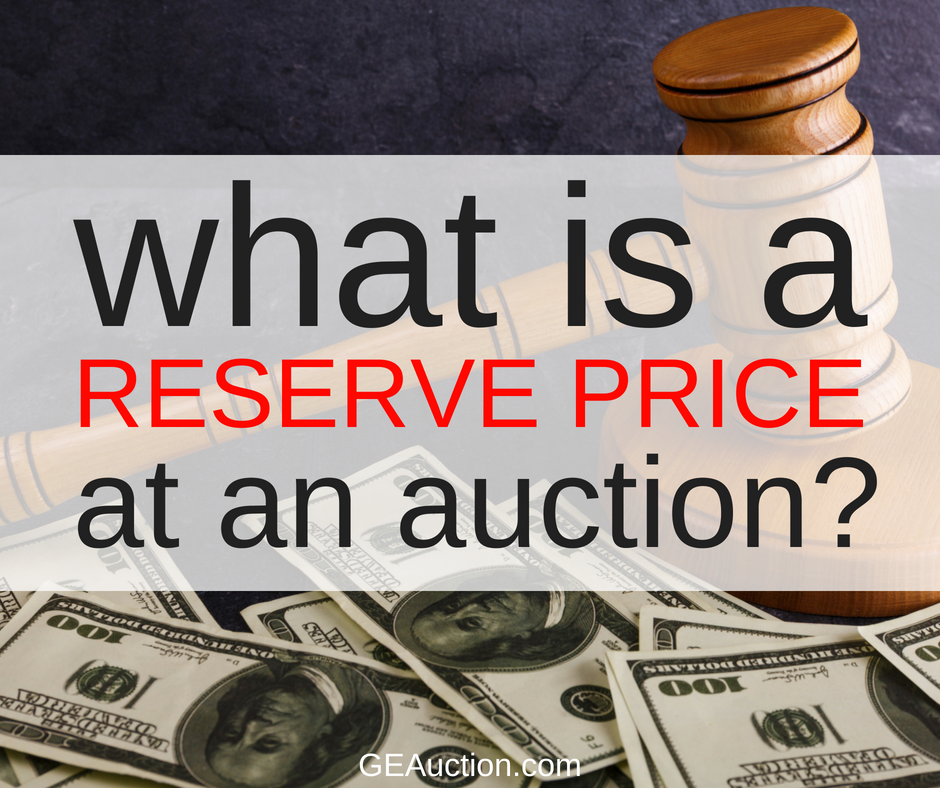Some items in an auction have what’s called a reserve price, and some have no reserve – but what’s the difference between the two?
What is an Auction Reserve?
An auction reserve is the minimum price the seller is willing to accept for an item. In this type of auction, the seller is only obligated to sell the item if the bid amount meets or exceeds his or her reserve price.
This reserve price protects the owner of the item from having to part with it for less money than he or she wants to.
A Reserve Price in Action
Here’s an example of a reserve price:
A seller is selling a vehicle at auction. He sets a reserve price of $6,000. The auctioneer opens the bidding at $4,000 and bidders work their way up until the price is $5,900.
Nobody wants to bid more than $5,900 for the vehicle.
The auctioneer removes the vehicle from the auction because the reserve price has not been met.
Here’s an opposite example of a reserve price:
Someone who decided to sell everything and start over is selling an antique glass collection at auction. She sets a reserve price of $150. The auctioneer opens the bidding at $75 and bidders quickly work their way up to $200.
The bidding continues until nobody else wants to bid. At that point, the auctioneer confirms that the highest bidder will buy the item because it met – and exceeded – its reserve price.
Pro tip: If you’re a seller who wants to set an auction reserve price, make sure you talk to the auctioneer about it before you make a decision. You could alienate potential buyers who are looking for a bargain – and your item may not sell. The auction house you’re working with can give you specific guidance.
What is a No-Reserve Auction?
In a no-reserve auction, the item must sell if someone bids on it in a timely manner. For the most part, items put up for grabs in a no-reserve auction will sell – unless nobody at all bids on them.
Many people feel that one of the biggest benefits to a no-reserve auction is that it can draw in a larger number of bidders who are looking for a deal. In this type of auction, there can’t be a minimum bid; neither can the seller reject or decline any bid. Typically, more bidders equals higher sales prices.
Are You Thinking About Attending an Auction?
If you’ve never been to an auction before, here’s what to expect at your first auction. While you’re here, check out our five auction tips for beginners and find out about our upcoming auctions.
We’d love to answer your questions about holding an auction to sell your belongings, as well, so please feel free to call us at 904-806-4274. You can also check out Great Expectations Auction & Estate Services on Facebook to look at current offerings and discover upcoming sales.



Comments 5
I’m wondering what the statistical outcomes are for people who put a car up for auction with a high reserve, which draws a lot of bidders and ends up coming close but not meeting the reserve, so the seller pulls the car, but a week later puts it back up for auction with no reserve. Is this a smart strategy to test the market or a risky strategy that invites low cluster bidding near the highest bid in the first auction that just missed the reserve?
Question: Does an advertisement for an auction have to disclose that there is a reserve?
If that advertisement states, “This sale will be conducted as a public auction to the highest bidder for cash.”, and there is no mention of “reserve” or conversely “no reserve”, what does that statement mean? Can a reserve be claimed at the beginning of the auction?
Should I disclose reserve price if asked by bidder
Only if the item has already been sold.
Disclosure before selling can have that knowledge used to make near certain the item is not sold above the reserve price.
What is the typical commission rate for the auction company, if I put a reserve on a parcel of land being auctioned on a reserve and day of auction, decide to no sale and sell the parcel to the person that has the reserve?